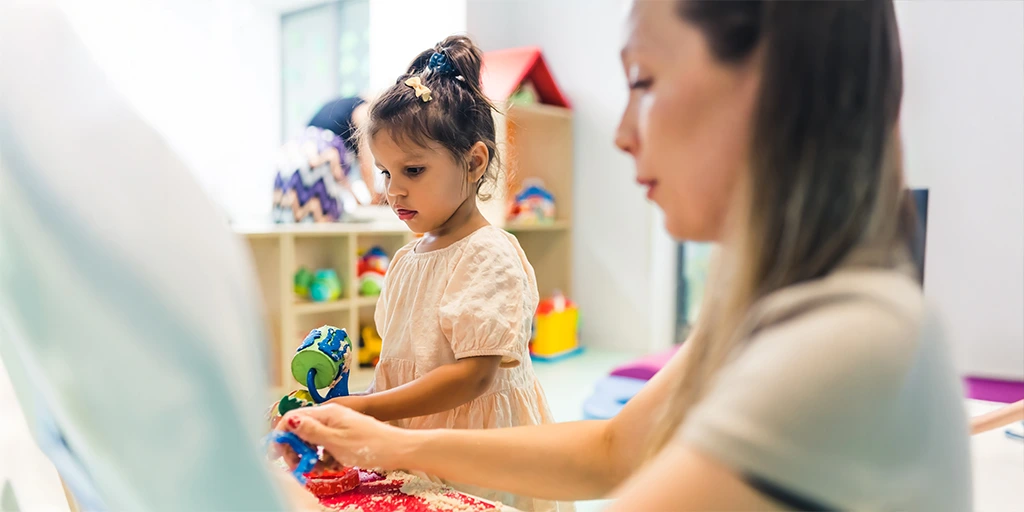Recognizing and Caring for Children & Adolescents with Severe Autism
Updated on June 25, 2025If you’re caring for someone with severe autism, it’s essential to understand the symptoms, challenges, and successful treatments for this complex condition in order to provide the best possible care. Unlike milder forms of autism, severe autism comes with pronounced difficulties with communication, social interaction, behavior, and basic daily functioning. And this naturally means greater responsibilities for parents, caregivers, and educators.
Defining Severe Autism in Adolescents and Children
People with autism are generally classified into one of three levels. Level three autism, also known as severe autism, is vaguely defined as “requiring very substantial support”. The reason for this vagueness is because people at level three behave in widely different ways, and the therapy and caregiving they require is just as diverse. There is no fixed set of support recommendations that apply to every level three person; and yet, the majority require high levels of support.
Severe autism is typically diagnosed when a child displays significant impairments in the following four areas:
- Difficulty with communication
- Poor behavior control
- Negative reactions to their surroundings
- Lack of independence

Communication Challenges
Perhaps the most impactful and noticeable sign of severe autism in children is their inability to communicate. One of the first symptoms of nonverbal autism can be noticed even in year-old children as they don’t make eye contact or respond to their name being said. Once they get older and reach the age at which children usually begin to talk, various barriers can occur, such as:
- Limited or no speech
- Echolalia (the autistic person continuously repeats sounds, words, or phrases that they hear)
- Poor understanding of nonverbal communication like gestures and facial expressions
As a caregiver, it is critical to be aware of the first signs of communication challenges. Early intervention allows you to get familiar with nonverbal communication tips and Augmentative and Alternative Communication (AAC) devices that help non-verbal people express themselves.
Behavioral and Emotional Regulation Issues
Severely autistic people face challenges in regulating and controlling themselves. Their reaction to people can be negative, ranging from a failure to make social connections to actual aggression. Even when in their “own world”, autistic people sometimes demonstrate unusual behavior such as repeatedly rocking back and forth or flapping their hands. When their stress levels get too high, such as from a change in routine or certain needs not being met, their behavior can escalate to autism meltdowns and anxiety, and even self-harm. The key to preventing these crises is to know what triggers are relevant to the person you are caring for, and make sure to minimize or even prevent them.

Sensory Processing Challenges
Sensory processing disorder (SPD), in which the brain has trouble receiving information that comes through the senses, often goes hand in hand with severe autism. In general, autistic people are more sensitive to their environment than neurotypical people. They may exhibit sensory processing disorder signs as they feel overstimulated (hypersensitivity) by lights, noise, smells, and other sensory input, particularly in environments that are new to them. But the opposite can also occur in the form of hyposensitivity (or under-sensitivity). For instance, severely autistic people might constantly seek out places with loud noise and bright lights. Dealing with these issues means setting up an environment that accommodates the autistic person’s individual needs, and limiting their exposure to the surroundings that disagree with them.
Daily Living and Independence Difficulties
The effect of these severe autism symptoms is that the autistic person cannot take care of their basic needs on their own. But knowledgeable caretaking can make a world of difference in reducing these negative emotions and experiences.
Autistic people tend to enjoy routines and familiar environments. With this in mind, caretakers can employ the following concepts to gradually teach autistic people life skills and good habits regarding dressing, sleeping, eating, and hygiene:
- Step-by-step guidance
- Repetition
- Established order
It’s important to be very clear in communicating exactly how to do things by, for example, using visual tools that set out schedules and indicate when to transition between activities. Similar care should be taken to teach autistic people about what to do when they feel anxious by, for instance, going to a quiet space, eliminating noises, and using devices or sensory tools that soothe them.

How AngelSense Supports Families
It’s incredibly important to encourage autistic children to be as independent as possible. But this also comes with certain risks, including those related to autism safety and wandering. No matter how hard we try, some autistic people still manage to stray from home.
Here too, there is a solution. AngelSense GPS and voice monitoring provides safety and peace of mind for parents and caretakers. Its features include real-time tracking and two-way automatic communication, contained within a sensory-friendly wearable device that ensures safety during outings, therapy appointments, school bus rides, and in case of mishaps.
Caring is the Key
Supporting someone with severe autism can be made easier by accessing the right professional support, advocating for your child, and celebrating progress at every step. Little things like customizing their environment to their unique sensory needs, whether that’s dimmed lighting, plush furniture, or white noise, can go a long way. But most important of all of course is your love for each other, through which you will come to better understand and provide the support that helps your child thrive.
Get peace of mind from AngelSense, the groundbreaking AI-based assistive technology designed to enhance safety and peace of mind for individuals with special needs and their families. Our solution ensures you stay connected with your loved ones, empowering a higher level of independence while maintaining safety. Learn more about how AngelSense can make a difference for your family.

